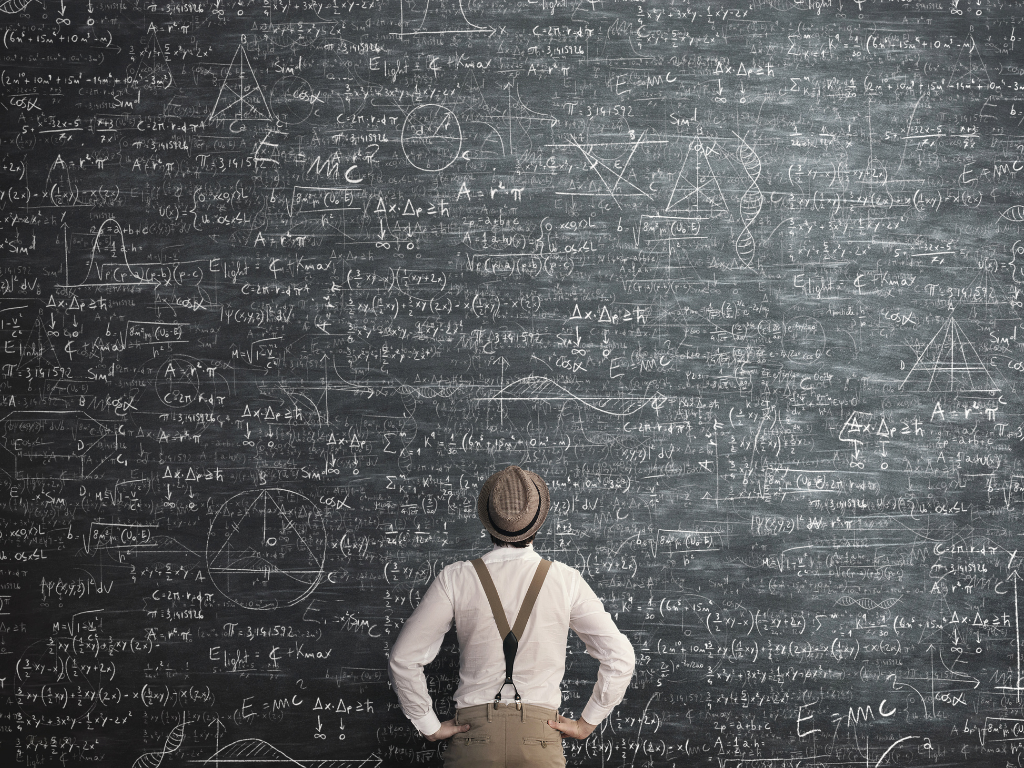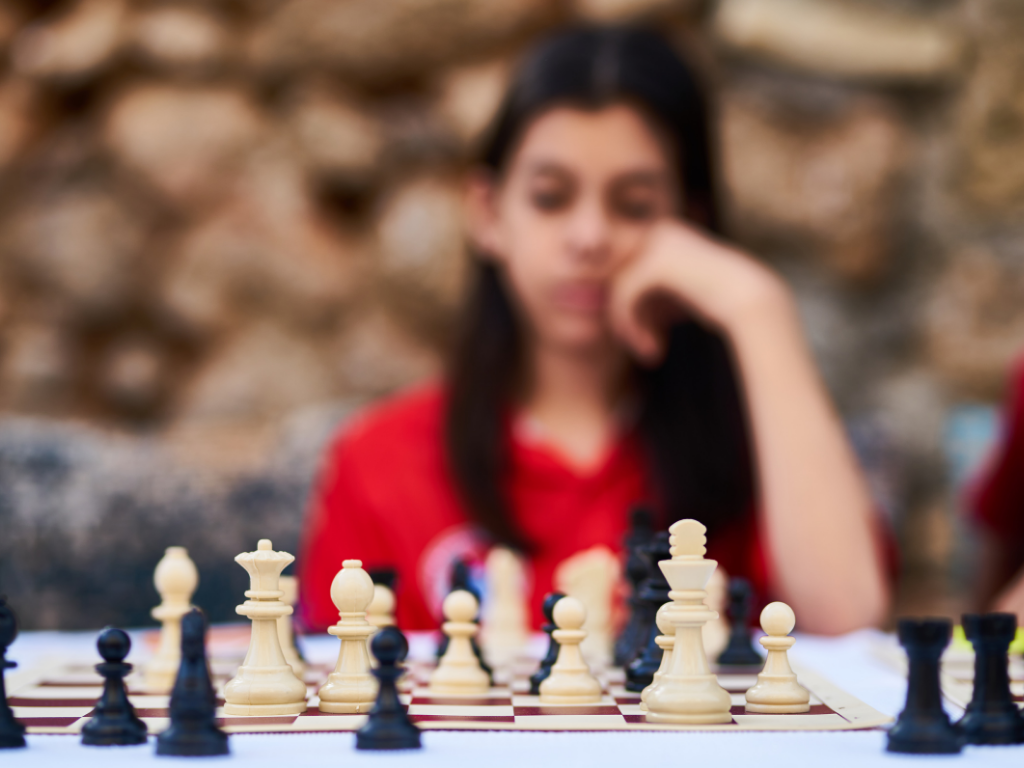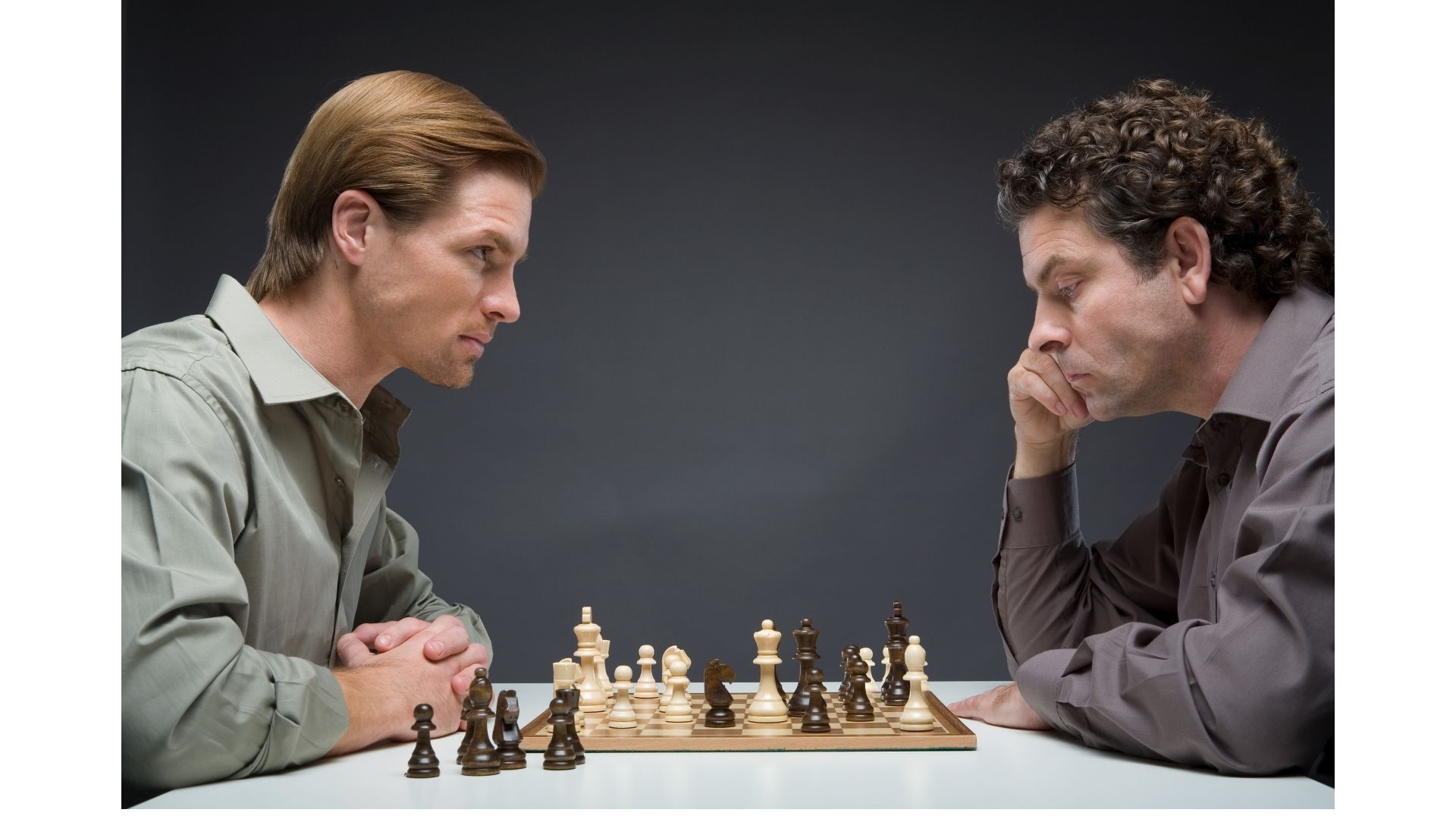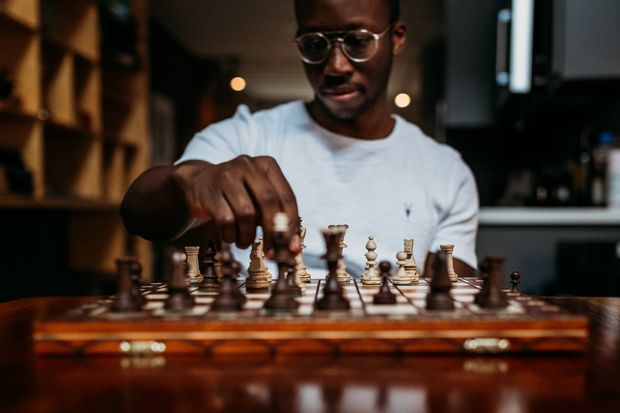Throughout Brainscape's Academy, we've shown you a myriad of ways you can improve and optimize your brain health by eating the right foods, using exercise to power productivity, and beating bad sleep habits. Activities like puzzles or learning a foreign language have also been shown to keep your brain sharp.
But what about chess, which was recently made extremely popular by the 2020 series, The Queen's Gambit? Chess is a game typically associated with intelligence and a keen grasp of strategy. But can playing chess make you smarter? As it turns out, yes!
If you’re already a chess lover, this article will open your eyes to all the wonderful things it's doing for your brain. If you’re not yet, it might just motivate you to start. So, with that said, here are 10 ways that chess can actually make you smarter...
1. Chess can raise your IQ
Chess has always had a bit of an image problem, being seen as a game for brainiacs and nerds who already have stratospherically high IQs. So there's a bit of a chicken-and-egg situation: do smart people gravitate towards chess, or does playing chess make them smart?
Well, in a review of the educational benefits of chess, Robert Ferguson describes a study of 4,000 Venezuelan students, which showed significant increases in the IQ scores of children after four months of chess instruction. Other research has corroborated these results of skill transfer.
Of course it probably works both ways: people who are naturally predisposed to strategic, "thinking" games tend to have higher IQs anyway, but playing chess also develops those same skills so after some time, it should reflect in their IQ scores.
2. Chess helps to prevent Alzheimer’s disease

A study featured in The New England Journal of Medicine found that people over the age of 75 who engage in brain-targeted activities like chess were less likely to develop dementia than their those who didn't. Just like an un-exercised muscle loses strength due to atrophy, the study’s authors found that unused brain tissue also tends to lose neuroplasticity, the ability to modify, change, and adapt both structure and function in response to learning. These results were corroborated by a big review that concluded chess is a protective factor against dementia.
The take-home message is that working your brain through problem-solving, thinking games like chess—or puzzles, sudoku, crosswords, and riddles—can keep your brain's neuroplasticity pliant as you age, helping to stave off diseases like Alzheimer's and dementia.
(Another cognitive exercise that helps to exercise your brain and strengthen memories is active recall, so check out our article on how to harness active recall to learn more efficiently.)
3. Chess exercises both sides of the brain
In a German study titled 'Mechanisms and neural basis of object and pattern recognition: a study with chess experts', researchers showed chess experts and novices simple geometric shapes (unrelated to the game) and chess positions and patterns. They then performed a comparitive study of their reactions to them, expecting to find that the experts’ left brains were more active than those who were new to chess.
What they instead found was that both hemispheres of the brain were activated by the exercise, and that novices and experts had similar reaction times to the geometric shapes (unrelated to chess), but that the experts were using both sides of their brains to more quickly respond to the chess-related patterns position questions.
This tosses out the idea that chess is a logic-centric game because it actually engages both the logical and creative hemispheres of the brain!
4. Chess makes you more creative

Since the right hemisphere of the brain is responsible for creativity, it should come as no surprise that activating the right side of your brain helps to stimulate creativity. Specifically, chess has been shown to greatly increase your capacity for originality.
One four-year study by Robert Ferguson had students from grades 7 to 9 play chess, use computers, or do other activities once a week for 32 weeks to see which activity fostered the most growth in creative thinking. The chess group scored higher in all measures of creativity, with originality being their biggest area of gain!
So, if you're struggling to write that novel, perhaps invest in a chess board! (I wonder if that's how the originator of 'The Queen's Gambit' happened upon that idea...)
5. Chess improves your memory
Most serious chess players know—at least anecdotally—that playing chess improves your memory. Being a good player requires you to recognize patterns, plan strategies involving long sequences of moves, and remember how your opponent has operated in the past to help you win. But there’s also hard evidence to back up the anecdotal data.
In a two-year 'Chess in Education' study done in 1985, young students who were given regular opportunities to play chess improved their grades in all subjects. Their teachers also noticed that they exhibited better memory and organizational skills. This was corroborated by a similar study of sixth-graders in Pennsylvania. In fact, even students who had never before played chess were able to improve memory and verbal skills after playing!
Psssst! A powerful way to improve memory is through Brainscape's adaptive flashcards so take a look through our Knowledge Genome for the subject/s you need help studying or get started making your own flashcards so that you can learn more efficiently, whether your challenge is high school biology or the bar exam.
6. Chess improves your problem-solving skills

In a 1992 New Brunswick (Canada) study, a group of 450 students were split into three groups consisting of a control group (Group A), which received the typical math curriculum; Group B, who, in addition to the standard math curriculum, received chess instruction after first grade; and Group C, who began chess instruction in the first grade, in addition to math.
All of the groups then received a standardized test and it was shown, quite shockingly, that Group C’s grades went up from an average of 62% to 81.2%, outpacing Group A's average by 21.46%!
This study shows just how much the game of chess exercises the kind of problem-solving skills that are employed during mathematics. And it makes sense: a chess match is like one big puzzle that needs solving, only, with every turn your opponent takes, the challenge (and therefore the solution) completely changes. And this is great brain exercise!
7. Chess improves your reading skills
In an oft-cited 1991 study, Dr. Stuart Margulies studied the reading performance of 53 elementary school students who participated in a chess program, evaluating them in comparison with non-chess-playing students in the district and around the country. He found definitive results that playing chess improved reading performance: in a school district where the average students tested below the national average level of reading skill, kids from the district who played the game tested above it!
8. Chess improves your concentration

Unsurprisingly, the intense concentration that the game of chess demands serves as really good exercise for players, who can then apply those skills of concentration to other areas of their life! Getting distracted or thinking about something else for even a moment can result in the loss of a match, partly because an opponent is not required to tell you how he moved if you didn’t see it. Numerous studies of students in the U.S., Russia, China, and elsewhere have shown time and again that young people’s ability to focus is sharpened through the game of chess.
(Check out our seminal Academy guide for other ways to boost your focus.)
9. Chess stimulates the growth of neuron dendrites
Dendrites are the tree-like branches that conduct signals from other neural cells into the neurons they are attached to. Think of them like antennas picking up signals from other brain cells. The more antennas you have and the bigger they are, the more effectively signals can be transmitted, which means quicker learning and more decisive thinking.
Learning a new skill like chess-playing stimulates dendrites to grow. But that growth doesn’t stop once you’ve learned the game! Interactions with people in challenging activities also fuels dendrite growth, and chess is a perfect example of just such an activity.
10. Chess teaches planning and foresight

One of the last parts of the brain to develop as humans mature is the prefrontal cortex, the region responsible for planning, judgment, and self-control. So, biologically speaking, even young adults aren't fully matured until this part develops, which is typically by age 24.
Strategy games like chess, however, can promote prefrontal cortex development and help improve teens' and young adults' decision-making in all areas of their life, perhaps keeping them from making stupid, risky choices of the kind associated with being young and reckless!
Does chess make you smarter?

So, yeah, there's some pretty good evidence to suggest that playing chess develops your brain and improves your cognitive abilities. If you’re interested in other ways to improve your skillset, intelligence, and brain health, keep exploring the Brainscape Academy for a whole library of totally free study guides.
And if you're trying to boost intelligence to pass an exam or course, go study in Brainscape, the world's smartest study and flashcard app, which will help you master languages, science content, history, and any other subject so much more efficiently.
Best of luck in your chess tournament – and your lifelong quest to get smarter!
Sources
Bilalić, M., Langner, R., Erb, M., & Grodd, W. (2010). Mechanisms and neural basis of object and pattern recognition: a study with chess experts. Journal of Experimental Psychology: General, 139(4), 728. https://doi.org/10.1037/a0020756
Ferguson Jr., R. (2007). Chess in Education: Research Summary. A review of key chess research. http://uschesstrust.org/wp-content/uploads/2007/08/chess-in-education-research-summary-by-robert-ferguson.pdf
Jankovic, A., & Novak, I. (2019). Chess as a powerful educational tool for successful people. In 7th International OFEL Conference on Governance, Management and Entrepreneurship: Embracing Diversity in Organisations. April 5th-6th, 2019, Dubrovnik, Croatia (pp. 425-441). Zagreb: Governance Research and Development Centre (CIRU). https://www.econstor.eu/bitstream/10419/196101/1/ofel-2019-p425-441.pdf
Joseph, E., Easvaradoss, V., Kennedy, A., & Kezia, E. J. (2016). Chess training improves cognition in children. GSTF Journal of Psychology, 2(2), 1-6. doi: 10.5176/2345-7872_2.2_33
Lillo-Crespo, M., Forner-Ruiz, M., Riquelme-Galindo, J., Ruiz-Fernández, D., & García-Sanjuan, S. (2019). Chess Practice as a Protective Factor in Dementia. International journal of environmental research and public health, 16(12), 2116. https://dx.doi.org/10.3390%2Fijerph16122116
Margulies, S. (1992). The effect of chess on reading scores: District nine chess program second year report. The American Chess Foundation, New York. https://pdfs.semanticscholar.org/4b6d/f99da808d6e0e60a960c2e34b17e8679081e.pdf
Verghese, J., Lipton, R. B., Katz, M. J., Hall, C. B., Derby, C. A., Kuslansky, G., ... & Buschke, H. (2003). Leisure activities and the risk of dementia in the elderly. New England Journal of Medicine, 348(25), 2508-2516. doi: 10.1056/NEJMoa022252
